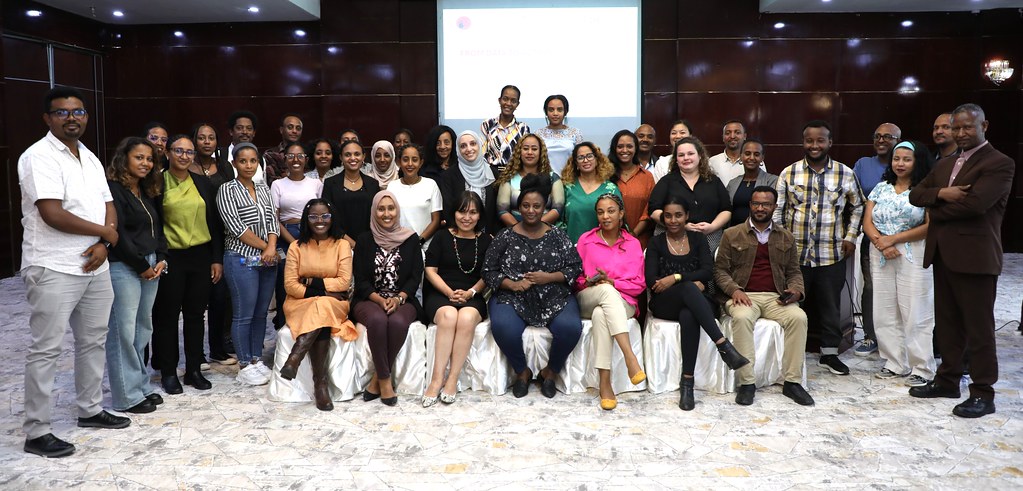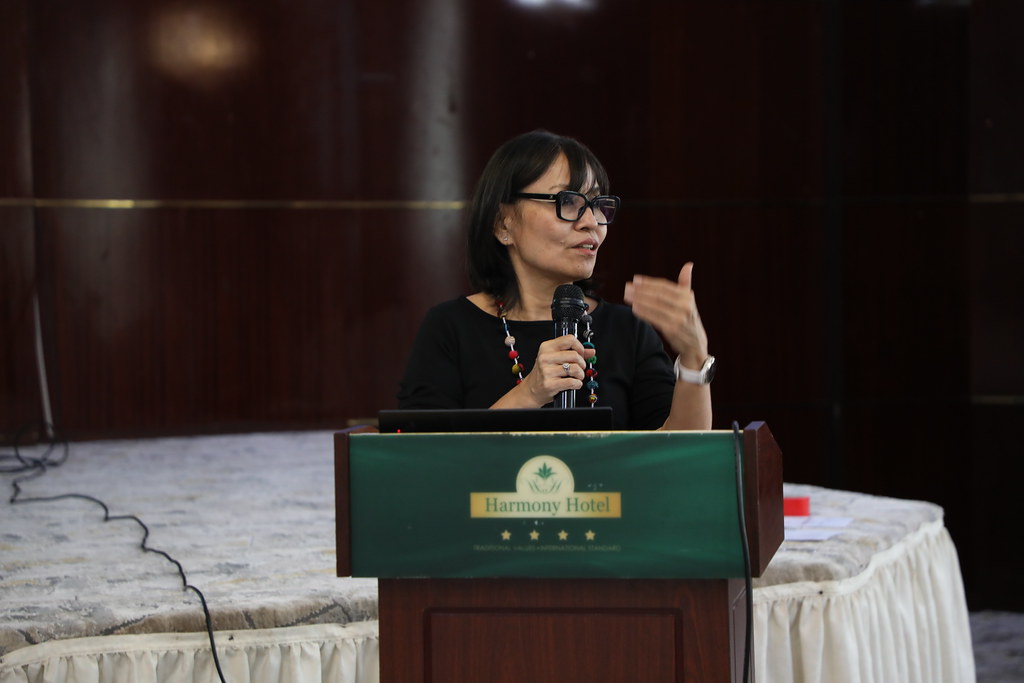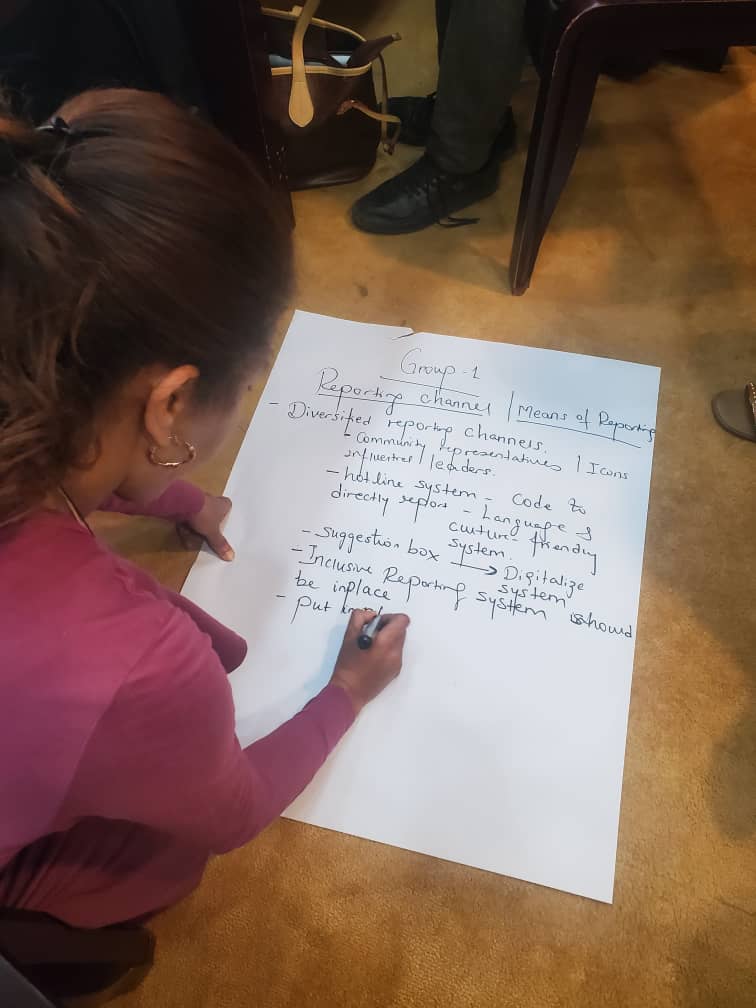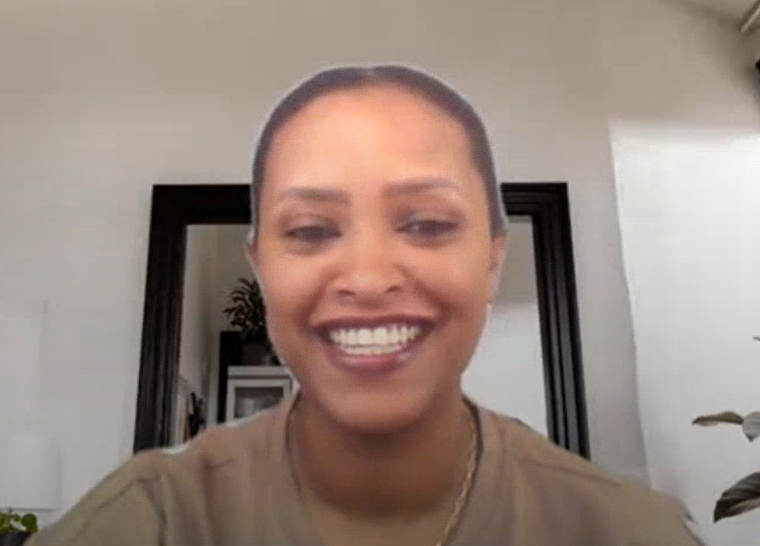Breaking the Silence: enabling participation in PSEAH in Ethiopia
Two years ago, Tiheyis Tibebu joined the CHS Alliance to lead the Closing the Accountability Gap project in Ethiopia- an initiative aimed at placing local actors and smaller NGOs at the centre of Protection from Sexual Exploitation, Abuse, and Harassment (PSEAH) efforts, and ensuring that the voices of crisis-affected communities are truly heard.
Since then, Tiheyis has been running a pilot project for the CHS Alliance in Ethiopia, to help smaller organisations join the Harmonised Reporting Scheme – a scheme which provides the first anonymous mapping of safeguarding incidents worldwide through aggregated data, to effect change.

Group of participants attend dissemination workshop in June 2024
She explained that although many organisations were eager to participate, they had previously been unable to join the scheme.
“One of the key challenges is that many national organisations lack the systems required to join,” Tiheyis comments. “To be part of the Harmonised Reporting Scheme, organisations need to have reporting and feedback mechanisms in place”, she continues. “But many don’t. This means when there are incidents, survivors cannot effectively report, and organisations themselves are also not aware of what steps to take. Where there are systems in communities, such as hotlines, feedback forms – often staff are not aware of how to actually use them or those that exist are not truly functional” .
Lack of evidence
Lack of reporting is not only damaging to survivors. An absence of evidence and aggregated data means it is almost impossible to evidence the scale of SEAH in Ethiopia, Tiheyis says, a critical barrier to donor funding, and more crucially, influencing positive change for communities.
”This is not a new issue. I’ve been working on gender-based violence for many years” Tiheyis says. We always provided training, and that is useful – but we have never actually had data or evidence. This is a problem.”
Over the past year, Tiheyis has run several three-month mentoring programmes to help organisations create a safe environment for the community and to enable them to join the Harmonised Reporting Scheme. This involved 3 days of in-person one to one training.
She explains: “The first month we met and developed an action plan, PSEAH policy and a code of conduct which were tailored to their organisation. The second month we worked together to create reporting channels, and in the third month we moved into mentoring – helping them to respond to and mitigate risks.”
Witnessing the shift
Tiheyis has supported 16 organisations to improve their safeguarding policies and actions, which allowed them join the HRS, resulting, for the first time ever, in a set of data on SEAH in Ethiopia, and reporting of incidents.

UNICEF Deputy Representative Mariko Kagoshima giving closing remarks during HRS dissemination workshop
Organisations from different areas of humanitarian support and development took part – from refugee action, to WASH, education, and organisations working to prevent and respond to gender-based violence.
At the beginning the team were not receiving reports of any incidents, and in the first assessment, scoring for understanding of PSEAH was as low as 5%. Within 3 months, this increased to 80 or even 90%.
“We now have 20 reports of SEAH”, she says “ and this is growing every day. It is just the beginning. There is still massive under-reporting but we are finally seeing some improvement and building that critical evidence base. It is now easier for these smaller organisations to protect their community and to access funds to support their work. We work together with the Ethiopian Humanitarian Fund, and one organisation who has been part of the Scheme has just received funding. This is a game changer.”

Participant notes down next ideas for new reporting channels during workshop
People not process
“The shift is – this is about consultation, and more importantly, people. Alongside the lack of understanding of PSEAH, there are also cultural barriers – and so often these are not considered. Practitioners often impose systems, but don’t consult, or see culture or context. This training was about getting to know what the organisations and what the community needs.
“Let’s be honest – we have a lot of people accessing services who don’t have even their basic needs fulfilled. When you start talking about safeguarding you can see that this is a deep issue. But as participants see the impact on survivors and victims, the big picture becomes clearer, as does the benefit of putting these systems in place.”

Tiheyis Tibebu recounts her experiences working for CHS, July 2025
As a professional working in the field for many years, Tiheyis admits she was taken aback by the swift impact of the programme and the difference it will make to communities.
“That’s quite something, to see the communities we serve more protected and with a system that’s working”, she says. “We will continue advocating with the PSEAH network, and we hope more organisations will join. There is still a huge gap and challenge to have this in place. But we have made a great start”.
Find out more about the Harmonised Reporting Scheme with resources, case studies and information on joining here.
To contact the Alliance’s PSEAH team directly, email seah.hrs@chsalliance.org
